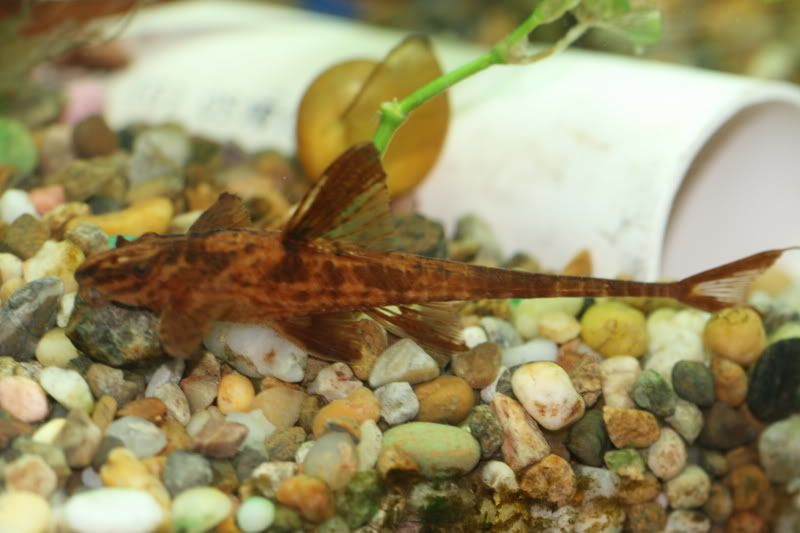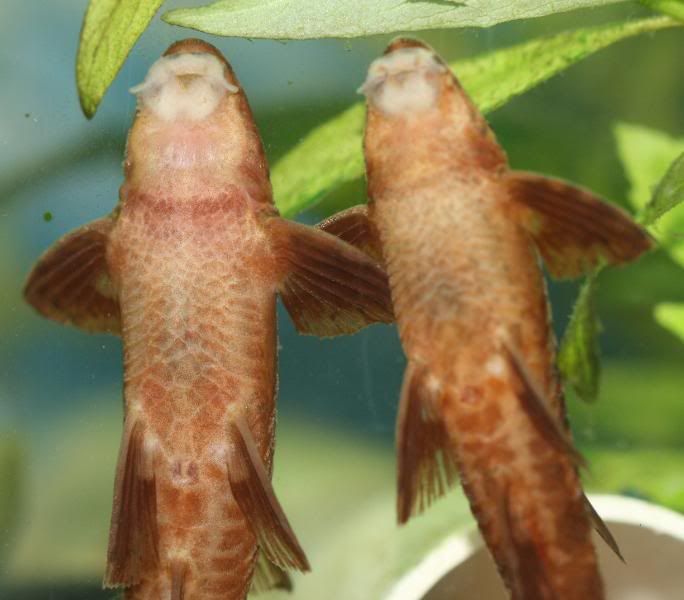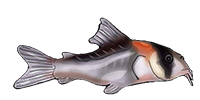They seem much more active than my three eigenmanni whiptails, and also seem to display their dorsal fins much more. I haven't quite found what their most favourite food is yet, but they don't seem to mind blanched continental cucumber and blanched fancy lettuce so at least they are eating something.

I seem to have scored a male and female as well. The photo clearly shows the male on the left and female on the right.





